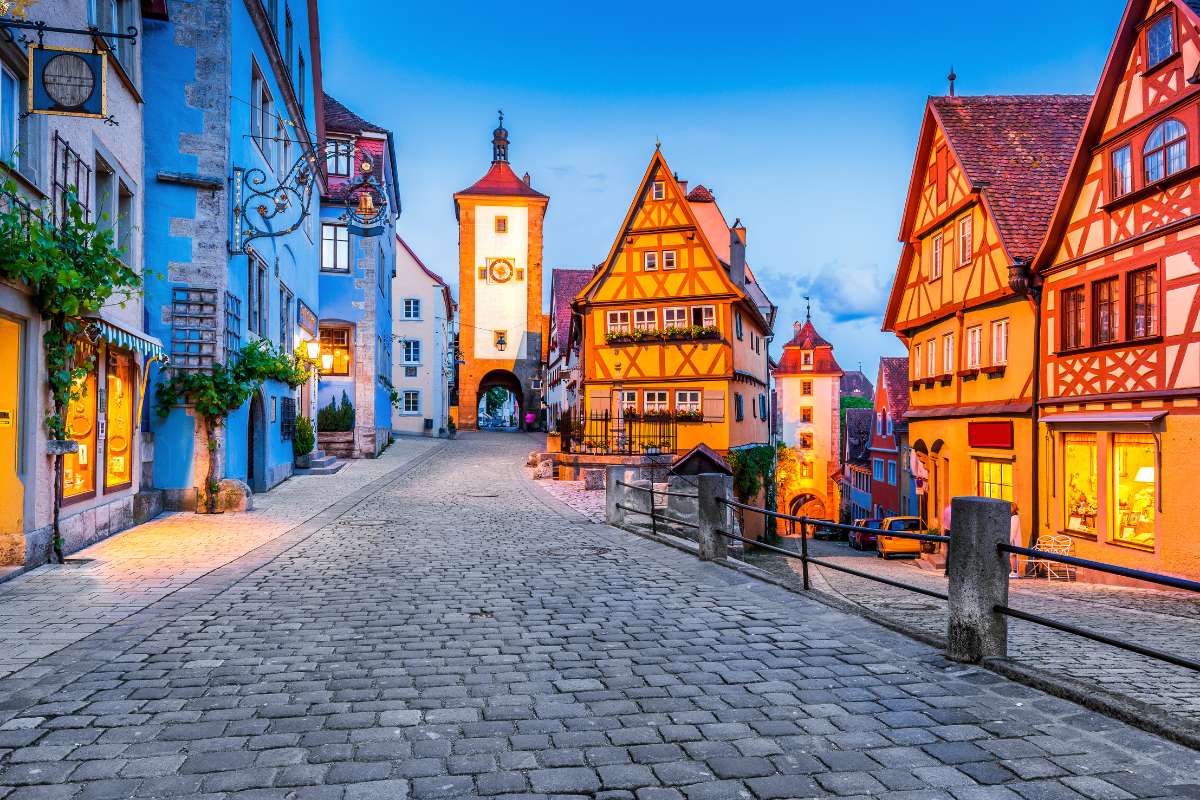Gift sharing is an integral part of German culture, and it is deeply rooted in their traditions and festivals. Germans exchange gifts for many occasions, including Christmas, Easter, birthdays, and weddings.
The German gift-giving culture values thoughtfulness, practicality, and quality over extravagance, making it a unique and meaningful way of expressing gratitude, love, and appreciation.
Major Festivals in German Culture and Gift Giving
Christmas is the most important gift-giving festival in German culture, and it is celebrated with great enthusiasm and warmth. Germans traditionally exchange gifts on Christmas Eve, and the gift-giving is often accompanied by carol singing, feasting, and family gatherings. Gifts for Christmas are often practical items such as clothing, books, and household items, as well as traditional Christmas treats such as gingerbread cookies and marzipan.
Easter is another major gift-giving festival in Germany, and it is a time when Germans exchange colorful Easter eggs and chocolates. Germans also give small gifts to their loved ones during the Easter season, such as spring flowers and crafts.
Birthday celebrations are also a popular occasion for gift-giving in Germany, and it is customary to bring a gift when invited to someone’s birthday party. Popular gift items for birthdays include flowers, chocolates, and personal items such as perfume and accessories.
Popular Gift Items in German Culture
Germans have a strong tradition of gifting practical items that are useful in daily life. Germans value quality, craftsmanship, and durability, and they prefer to buy gifts that are made locally and sustainably. Some popular gift items in German culture include:
- Beer Steins: Beer steins are a traditional gift item in German culture and are often given to men. They are often made of high-quality ceramic or glass and feature intricate designs and engravings.
- Christmas Ornaments: Germans take their Christmas decorations seriously, and they often give and receive Christmas ornaments as gifts. Christmas ornaments can be made of wood, glass, or other materials, and they often feature traditional German designs such as nutcrackers, angels, and Christmas trees.
- Personalized Gifts: Germans value personalization and individuality, and they often give personalized gifts such as monogrammed towels, photo albums, and jewelry.
- Food and Wine: Germans love their food and wine, and they often give high-quality food and wine products as gifts. Popular food gifts include artisanal cheeses, cured meats, and chocolates, while popular wine gifts include German Riesling and sparkling wine.
Roses in German Gift Giving
Roses are a popular gift item in German culture, and they are often given as a romantic gesture. Red roses, in particular, are associated with love and passion, and they are often given on Valentine’s Day, anniversaries, and other romantic occasions.
Germans also give roses to express gratitude and appreciation, and they are a common gift item for Mother’s Day.
Trends in Gift Sharing in Germany
Over the years, gift-giving in Germany has become more commercialized, with an emphasis on buying expensive and luxurious gifts. However, many Germans still prefer to give practical and meaningful gifts that reflect their values and traditions.
In recent years, the trend towards sustainable and eco-friendly gifts has also become more popular in Germany. Germans are becoming more aware of the impact of their consumption on the environment, and they are increasingly seeking out gifts that are made sustainably and ethically.
The Role of Social Media in Gift Sharing
Social media has had a significant impact on gift-sharing in Germany, making it easier for people to find inspiration and share their gift-giving experiences.
Social media platforms such as Pinterest and Instagram have become popular sources of gift ideas and inspiration, with many Germans, using these platforms to discover new gift trends and ideas.
ideas, social media has also made it easier for Germans to shop for gifts online. Online shopping has become increasingly popular in Germany, and many Germans now prefer to buy gifts online rather than in traditional brick-and-mortar stores.
Online shopping offers many benefits, including convenience, a wider selection of products, and the ability to compare prices and reviews.
Social media has also made it easier for Germans to share their gift-giving experiences with friends and family. Platforms such as Facebook and Twitter allow Germans to share photos and stories about the gifts they have given and received, creating a sense of community and connection.
Social media also allows Germans to connect with people from different parts of the world and learn about gift-giving traditions in other cultures.
The Value of Gold, Silver, and Platinum Dipped Roses as Gifts
Gold, silver, and platinum dipped roses are becoming an increasingly popular gift item in Germany. These roses are natural roses that have been dipped in a precious metal, such as gold or silver, and they make a unique and luxurious gift item.
Gold, silver, and platinum dipped roses are often given as a symbol of love and commitment. They are a popular gift item for Valentine’s Day, anniversaries, and other romantic occasions.
They are also a popular gift item for Mother’s Day, as they are a symbol of appreciation and gratitude.
In addition to their aesthetic appeal, gold, silver, and platinum dipped roses also have practical benefits. They are long-lasting and require minimal maintenance, making them an ideal gift for people who do not have a green thumb or who are unable to care for living plants.
In general, gift sharing is an important part of German culture, and it is deeply rooted in their traditions and festivals.
Germans value practicality, thoughtfulness, and quality over extravagance when it comes to gift-giving, making it a unique and meaningful way of expressing gratitude, love, and appreciation.
Major festivals such as Christmas and Easter, as well as birthdays and weddings, are occasions when Germans exchange gifts.
Popular gift items in German culture include beer steins, Christmas ornaments, personalized gifts, and food and wine products.
Roses are a popular gift item in German culture, and they are often given as a romantic gesture.
Social media has had a significant impact on gift sharing in Germany, making it easier for Germans to find inspiration, shop online, and share their gift-giving experiences with friends and family.
Gold, silver, and platinum dipped roses are becoming an increasingly popular gift item in Germany, and they are often given as a symbol of love and commitment.
They are a unique and luxurious gift item that has both aesthetic appeal and practical benefits.
Overall, gift sharing in German culture is a way of expressing love, gratitude, and appreciation, and it is an important aspect of their rich and diverse cultural heritage.


0 Comments